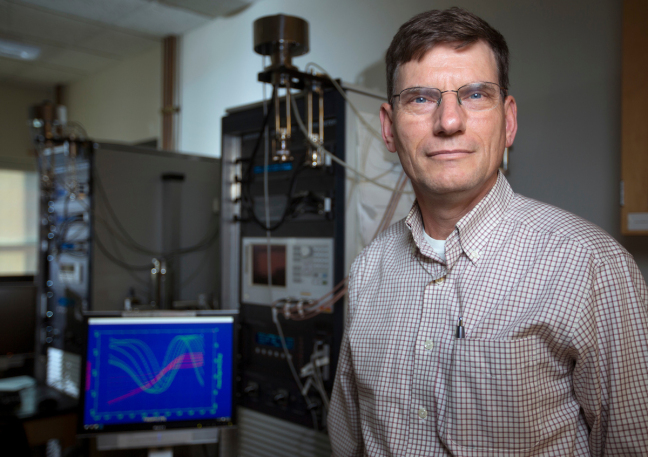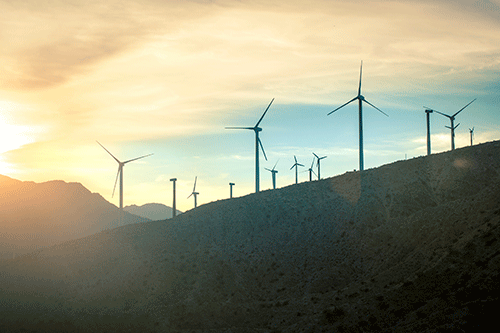 Researchers from the University of California, Riverside recently combined photosynthesis and physics to make a key discovery that could lead to highly efficient solar cells.
Researchers from the University of California, Riverside recently combined photosynthesis and physics to make a key discovery that could lead to highly efficient solar cells.
Nathan Gabor, a physicist, began exploring photosynthesis when he asked himself a fundamental question in 2010: Why are plants green? This question probed him to combine his physics training with biology.
Over the past six years, Gabor has been rethinking energy conversion in light of these questions. His goal was to make solar cells that more efficiently absorb intermittent energy from the sun and increase past the current 20 percent efficiency. In this, he was inspired by the plants that had evolved over time to do exactly what he hoped solar cells would be able to do.
This from University of California, Riverside:
[The scientists] addressed the problem by designing a new type of quantum heat engine photocell, which helps manipulate the flow of energy in solar cells. The design incorporates a heat engine photocell that absorbs photons from the sun and converts the photon energy into electricity.Surprisingly, the researchers found that the quantum heat engine photocell could regulate solar power conversion without requiring active feedback or adaptive control mechanisms. In conventional photovoltaic technology, which is used on rooftops and solar farms today, fluctuations in solar power must be suppressed by voltage converters and feedback controllers, which dramatically reduce the overall efficiency.
At the core of the research, Gabor and his team are looking to connect quantum mechanical structure to the greenest plants.



 Twenty-sixteen marked the 25th anniversary of the commercialization of the lithium-ion battery. Since Sony’s move to commercialize the technology in 1991, the clunky electronics that were made possible by the development of the transistor have become sleek, portable devices that play an integral role in our daily lives – thanks in large part to the Li-ion battery.
Twenty-sixteen marked the 25th anniversary of the commercialization of the lithium-ion battery. Since Sony’s move to commercialize the technology in 1991, the clunky electronics that were made possible by the development of the transistor have become sleek, portable devices that play an integral role in our daily lives – thanks in large part to the Li-ion battery. For the third year in a row, global carbon dioxide emissions from fossil fuels and industry have barely grown, while the global economy has continued to grow strongly. This level of decoupling of carbon emissions from global economic growth is unprecedented.
For the third year in a row, global carbon dioxide emissions from fossil fuels and industry have barely grown, while the global economy has continued to grow strongly. This level of decoupling of carbon emissions from global economic growth is unprecedented.
 Renewable energy efforts around the world have grown exponentially over the past few years. Countries such as Japan have developed the world’s largest
Renewable energy efforts around the world have grown exponentially over the past few years. Countries such as Japan have developed the world’s largest  President…Donald…Trump. For those on both sides of the aisle who vowed “Never Trump!,” that’s going to take some getting used to. On this morning after a stunning election, the first impulse may be to describe the future in apocalyptic phrases. Game over for the climate! Game over for NATO! Game over for the Clean Power Plan! Game over for Planned Parenthood!
President…Donald…Trump. For those on both sides of the aisle who vowed “Never Trump!,” that’s going to take some getting used to. On this morning after a stunning election, the first impulse may be to describe the future in apocalyptic phrases. Game over for the climate! Game over for NATO! Game over for the Clean Power Plan! Game over for Planned Parenthood!